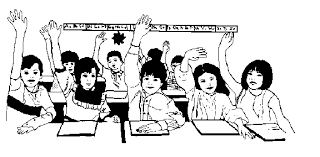Abolish the Practice of Streaming in Malaysian Schools

Streaming has been practiced in Malaysian schools for decades since independence. Unfortunately, most reports on curriculum and educational reform have not questioned the practice. TWO types of streaming continue to be practiced and the question is whether it is appropriate in preparing learners for the 21st century
1) Streaming According to Ability Level
Streaming according to academic ability is commonly practiced in most schools beginning as early as Year 1 in primary school. The rationale being that it is easier to teach learners of similar ability or disability leading to learners assigned to so called ‘worst’ classes with nice sounding class names such as ‘anggerik’, ‘jujor’ and others. Streaming according to academic ability has been discarded in most schools in Australia, United Kingdom and the United States.
The Matthew Effect:
‘Those who need it don’t get it and those who don’t need get it”. –
Unfortunately, in practice, the so called ‘best’ Bahasa Melayu or mathematics teacher is seldom assigned to the class of academic underachievers succumbing to the “Matthew effect” which simply states that “those who need it don’t get it and those who don’t need it get it. It is a double whammy when many of the learners in the weak classes are from low socioeconomic backgrounds who can ill-afford tuition compared to their more economically advantaged schoolmates. Schools prefer to put all their resources on academic high achievers to meet their KPIs of targeted percentage passes and number of A’s in the UPSR, PTS and SPM to please district and state authorities.
Sadly, a learner could be assigned to the ‘worst’ class on the first day of school and remain in the ‘worst’ class for the next 11 years until he or she leaves school. Research has shown that these learners experience various challenges such as low self-esteem, lack of confidence, belief in the self-fulfilling prophecy, often ignored and blamed for discipline problems. The likelihood of these learners growing up to be angry young men and women is high. They graduate from secondary school with a few passes in the SPM, burdened with weak literacy and quantitative skills which high-end industry find difficult to train. They end up in low level jobs with measly wages which is contrary to the goal of education which is to lift people out of poverty and ignorace.
Streaming should not be practiced in Malaysian schools however strong the arguments for it because the cost are too high. A school should be judged not by the number of ‘As’ obtained in national examinations but the proportion of learners who have achieved the standards stipulated in the curriculum at each level of schooling. No learner should be left behind and mastery learning should be the target of all schools where as many learners possible achieve the standards stipulated for each subject in the curriculum. Apparently, society is not excited with the results of school-based assessment but are more enthralled with achievement in national examinations such as UPSR, PT3 and SPM.
Every Malaysian child is valuable and every effort should be made to ensure that ALL learners achieve the standards stipulated in each subject in the curriculum. In preparing Malaysians for the 21st century, we cannot subscribe to the belief of the normal curve where some Malaysians will be academically excellent and some Malaysians will be academically weak while the majority of Malaysians will be academically average. We have to re-think our philosophy of teaching and listen to what Al-Farabi, Swami Vivekananda and Confucius had to say about educating our young.
Malaysia has a small population and every Malaysian is valuable. We cannot afford to waste or ignore the segment of low academic achievers whom we have created through our credentialing system. A child is told on the day he or she enters Year 1 (or maybe kindergarten) that he or she is “not good enough” and doomed to the ‘worst’ class just because his or her arithmetic or reading or writing skills are not up to par.

Putrajaya schools abolish class streaming system, Malay Mail, 2 Jan. 2018
2) Streaming into Arts and Science
Another type of streaming practiced for decades is when a 16-year old decides whether he or she wants to be a doctor or lawyer. The demarcation of ‘arts’ and ‘science’ is outmoded, narrow and restrictive because it is just impossible to classify the new jobs which have not been invented as Malaysia edges towards the digital economy. This narrow form of streaming should be abolished and every learner should be assured of 11 years of schooling during which they take an assortment of subjects from the sciences, arts, humanities, entrepreneurship, coding, robotics, technology and others aligned with National Philosophy of Education which emphasises on the holistic development of the learner.
The broad-based education during the 11 years of schooling should focus on the basics and equipped with ‘learning to learn skills’ learner will explore more deeply each subject using resources from the web. With a strong broad-based education the 9 competencies needed for the 21st century, learner joins the world of work well-equipped for jobs in the digital economy. Perhaps, we should look at the United States, which continues to produce leading inventions, discoveries and innovations which surely must be related to the way it educates its young.
After 11 years of a broad-based education for ALL, learners can decide whether they wish pursue science-based, technology-based, humanities-based, technical-based or vocational-based stream or career. Even them, we are not sure whether the jobs of the future can be grouped into the streams mentioned earlier. It can safely assumed that jobs of the future will require cross disciplinary skills. For example, a person who wants to initiate an agro-based start-up will require skills in agriculture and finance. Hence, the simplistic art-science divide is too simplistic and not appropriate for preparing learners for jobs of the future for which many have not been invented yet.